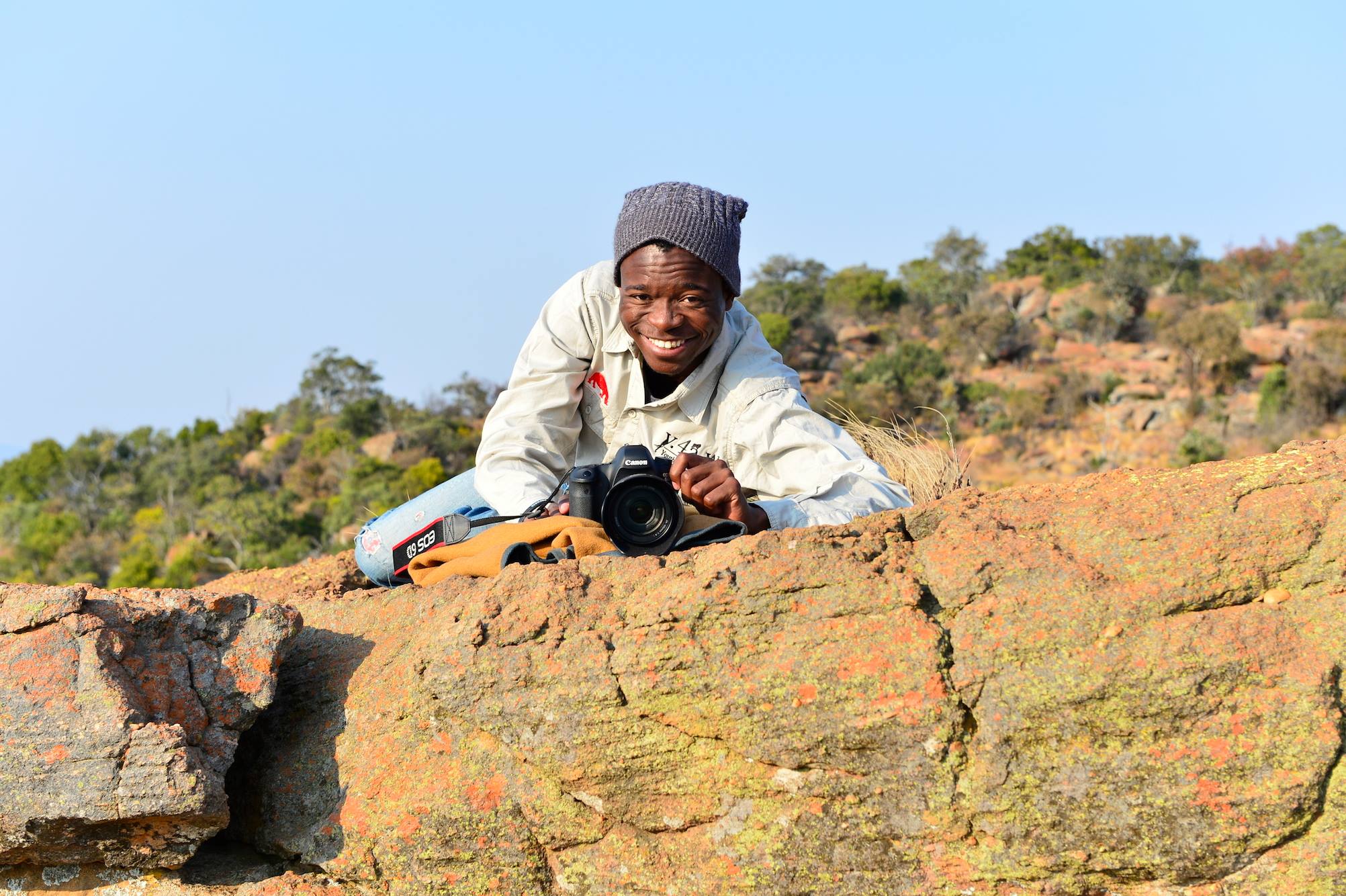The Future Leaders of Amphibian Conservation program is an award to a number of early-career conservationists from around the world that have been identified by the Amphibian Survival Alliance as the next generation of amphibian conservationists. So far we have awarded 19 Future Leaders from 12 countries (Bolivia, Brazil, Peru, Mexico, Ghana, South Africa, Uganda, India, Nepal, Pakistan, Australia and United States). You can learn more about some of the Future Leaders of Amphibian Conservation here.
Can you tell us a little bit about yourself, Fortunate?
I am an environmental scientist and author that is interested in the complex relationship between cultural diversity and the diversity of frogs and reptiles in South Africa.
What projects have you been involved in to promote amphibian conservation?
I have started a social inclusion initiative to produce non-scientific amphibian reading material in South Africa’s indigenous languages and record indigenous knowledge about the country’s frogs and reptiles. This project, called ‘Wildlife in Vernacular’, fits into my PhD research and also extends beyond the PhD years. Wildlife in Vernacular was inspired by the success of a book I wrote a few years earlier. This book is a com- prehensive guide to the frogs of the Zululand region of South Africa and it was written in English and isiZulu (one of the indigenous South African languages). A PDF version of this book (with frog advertisement calls) is available on this link. A summary of my general research focus is available on this link.
What is your favourite amphibian species and why?
The Giant Bullfrog (Pyxicephalus adspersus) is my favourite amphibian species because it is a great model for studying the relationship between frogs and indigenous people’s cultures.
Has being recognized as a Future Leader of Amphibian Conservation by ASA made a difference in your career so far?
Being recognized as a Future Leader helped me realize the many focus areas within amphibian studies and exposed me to different ways of conducting amphibian biodiversity studies. This is important because I became a Future Leader at a time when I needed to decide my research niche within amphibian studies.

